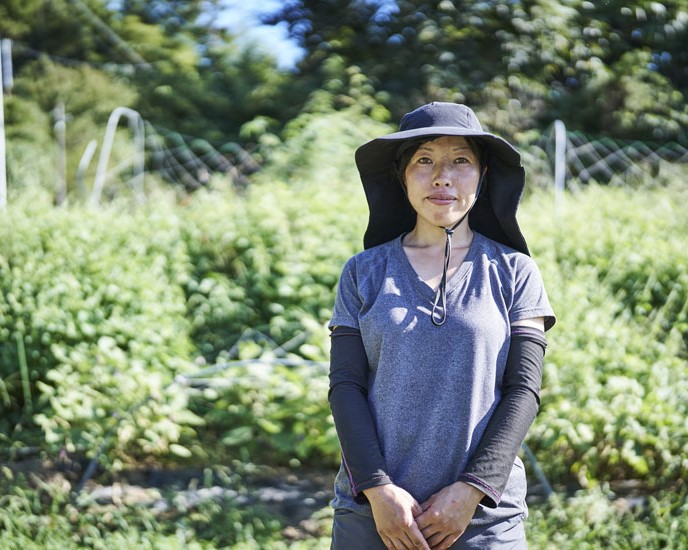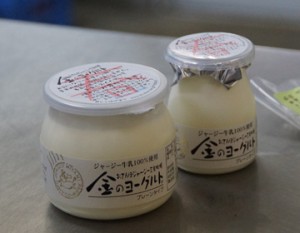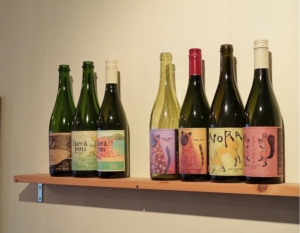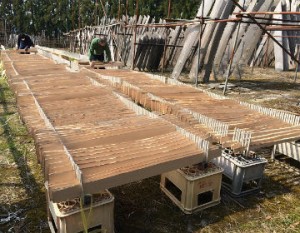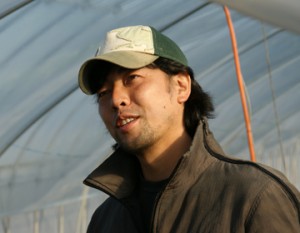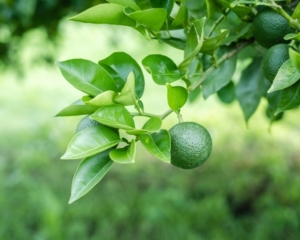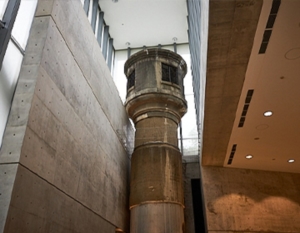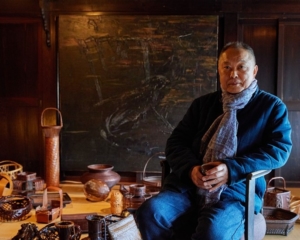Akiko Aoki of Farm Aki is a young farmer who grows vegetables and edible flowers without pesticides or chemicals in an area facing the Pacific Ocean called Sotobo. She is one of the leading farmers in Isumi City, which is attracting nationwide attention as a municipality that promotes environmentally friendly agriculture. What is Mr. Aoki’s vision of agriculture?
Toward an agriculture that can express the charm of vegetables and flowers as they are

Isumi City, Chiba Prefecture, which has been attracting attention from surfers in recent years as a mecca for surfing, has long had a thriving fishing industry because of its favorable fishing grounds where the Oyashio and Kuroshio currents meet off the coast of the Pacific Ocean. In addition, the rocky reef area known as Kiki-ine, where seaweed such as swordfish spreads, is a major habitat for lobsters, abalone, octopus, turban shells, and other species.
The Isumi River, which boasts one of the largest watersheds in the prefecture, flows into this seaweed forest. The Isumi River is said to provide fertile soil to the plains of Isumi because of its unique flow path that meanders repeatedly in the inland area. The clay soil nurtures high-quality rice, and Koshihikari rice grown without the use of pesticides or chemical fertilizers is branded as “Isumikko. Currently, all the rice used for school lunches in the city is Isumikko.
In addition, Isumi City has introduced its own certification system for vegetables and has proposed a new way of food and tourism called “gastronomy tourism. The city has been attracting a growing number of young farmers, who are starting farming with a unique farming style that differs from conventional farming methods, thanks in part to the early activities of an organization promoting rural migration.
In Isumi City, there is a man who grows vegetables while connecting the richness of both the sea and the village. That person is Akiko Aoki of Farm Aki.
Interaction with chefs who focus on Isumi

Isumi has a thriving agriculture and fishing industry and is very rich in ingredients. Chefs from far and wide often come to Isumi to look for ingredients. Aoki’s words reveal the high potential of Isumi’s food industry.
Farm Aki grows a wide variety of vegetables, herbs, and edible flowers in small quantities in the open fields, using no pesticides or chemical fertilizers. Take eggplant, for example. “The long, thin string eggplant (snake eggplant) can be roughly chopped and used in curry or as an eggplant with hot spicy sauce. You can enjoy the contrast between the crispy skin and the tender inside. Mini zebra eggplants are delicious when sauteed in olive oil. Thai eggplant (makuapo) is the small eggplant used in Thai green curry. This is the result of his repeated dialogues with the chefs who come to visit him and with the fields.
Mr. Aoki is basically a one-man farmer. Chefs who visit Farm Aki’s fields are inspired by the unique atmosphere of the farm. The relationship with local chefs is especially strong, and the farm also supplies vegetables to “Itsukiri,” which now functions as an auberge representing the Gaitomo region.
I love nature, and I want to tell it more honestly.

Aoki recalls that his family has been a farmer for generations in Haisumi, and that he has loved nature since he was a child. After graduating from high school, he entered an agricultural college. When he thought about what kind of work he could do with nature in his own way, farming came to mind.
After that, he worked for an agricultural corporation that cultivated fruit trees using conventional farming methods, but he could not stop himself from wanting to convey the appeal of food in a freer and more natural way, so he started his own business. Aoki, who had been familiar with a variety of vegetables and flowers in nature, felt that “being able to eat any part of the food whenever you want” was the best way to convey the appeal of food. Aoki, who believed that when pesticides are applied to vegetables, there are parts that cannot be eaten and times when they cannot be shipped, started farming without pesticides and chemical fertilizers by renting his family’s farm.
The field, the nature of Isumi, and people are connected.

Rather than deciding on a farming policy based on the method of pesticide-free cultivation, I decided to go pesticide-free because of the way I think about communicating the attractiveness of the crop. Farming methods are only a consequence. The same goes for fertilizers. The reason we don’t use chemical fertilizers is because we have fertilizers in Isumi,” Aoki says.
In fact, Aoki also helps out with lobster fishing after a local fisherman offered to give him some of his fish. When the lobster nets are hauled out of the sea, seaweed such as kajime seaweed is entangled along with the lobsters. These are a nuisance for fishermen who have to throw them away. However, the fisherman on the boat on which Mr. Aoki works happens to have experience in agriculture and has the wisdom to use seaweed as fertilizer for the fields. Through this encounter, he began to use seaweed as a fertilizer.
The seaweed is spread out to dry on the soil in the field and then plowed in. It helps supply minerals, and he now uses it intensively as the mainstay of his fertilizer. The Isumi River pours nutrients from the earth into the sea, and the sea’s blessings are utilized in the fields in this way. In my mind, the sea and the village of Isumi are connected,” says Aoki.
A nearby horse riding club provides horse manure for compost, and rice bran from his parents’ rice paddies is also used as fertilizer. It is less costly to use various local by-products as fertilizer, and it is also easier to avoid using fertilizers made far away from home. Aoki spreads locally produced fertilizer on his own fields, grows vegetables, and ships them to restaurants in Isumi City, where they are eaten. For Aoki, this kind of regional cycle “feels right.
Local relationships through mutual exchange of seeds and foodstuffs

Mr. Aoki grows his vegetables in the open so that his customers can experience the subtle changes of the seasons. However, in light of the recent hot weather, he has been shifting to vegetables from Okinawa and Southeast Asia, which are more tolerant of high temperatures and humidity. The first prerequisite is good taste,” Aoki says. “The first requirement is that the vegetables must be tasty, and then they must be suited to the land and climate. I believe that vegetables that have all of these qualities are the ones that can be presented to customers.
Aoki’s happiest time in the field is when he is planting seeds rather than harvesting. This is because “I feel at home, as if I am connected to the future. In addition to collecting their own seeds, farmers in the area have established a community where they can exchange various seeds with each other.
In Isumi City and its surrounding areas, farmers not only connect with each other and with fertilizers, but also with cheese studios, beekeepers, and other producers in a variety of genres, creating a kind of “neighborhood” relationship. Through these relationships, they are sometimes introduced to vegetable suppliers.
Through these relationships, the farmers are able to live a largely self-sufficient lifestyle. He receives fish from fishermen in the sea, wild game from hunters in the village, and honey from beekeepers, and in return he gives back in the form of vegetables, sweets, and labor that he produces himself. This village, the sea, the river, and the people are all connected. The field is a very small world, but I feel that everything is connected. A small seed, a piece of seaweed swaying in the sea, is the beginning of the community’s ties. Aoki hopes to make these ties even stronger and more diverse, and to connect the food supply to the future. He believes that this will lead to the enrichment of the region.



